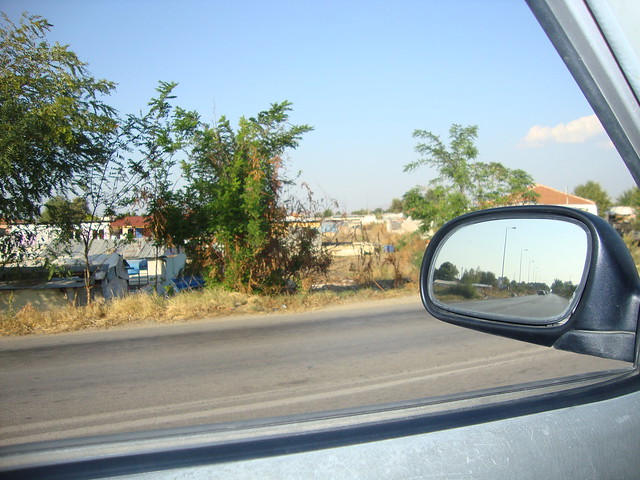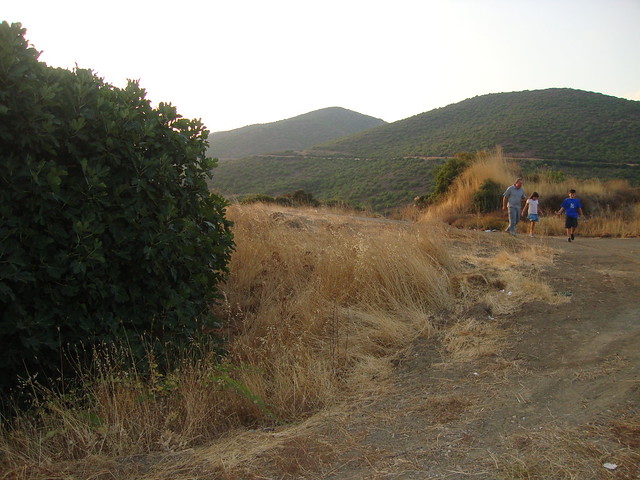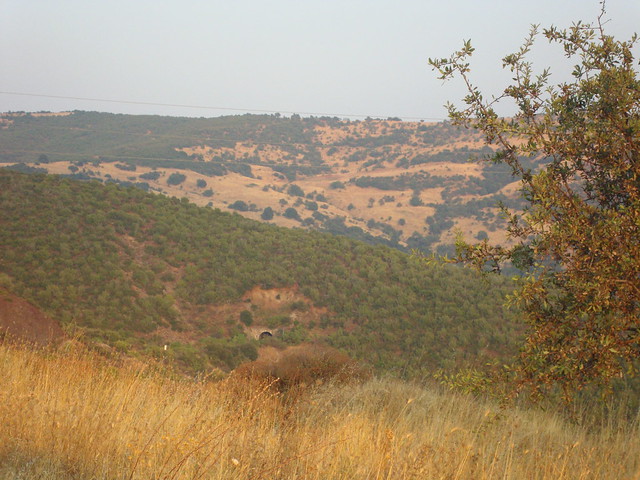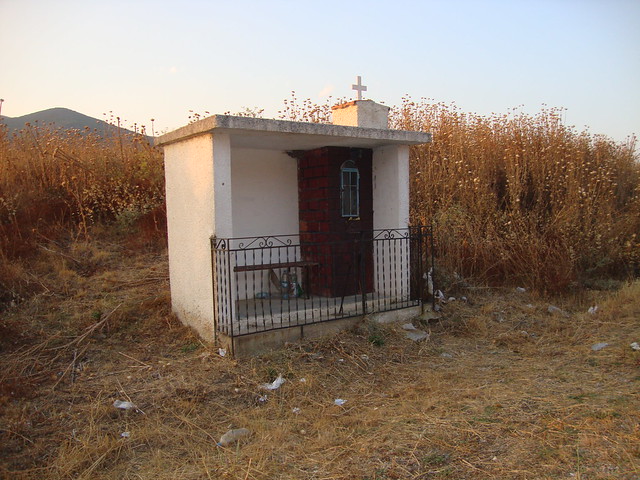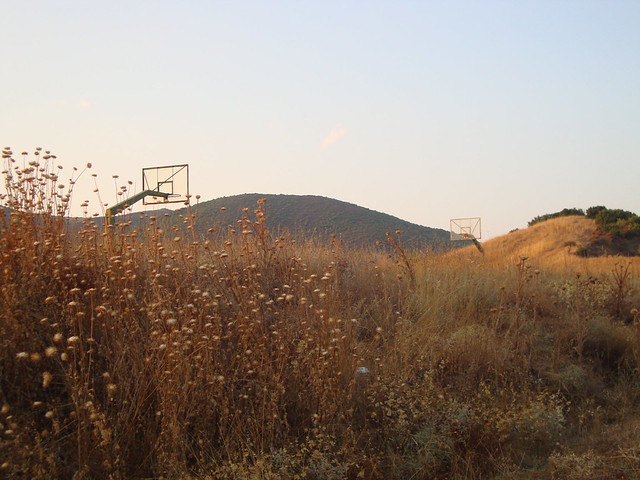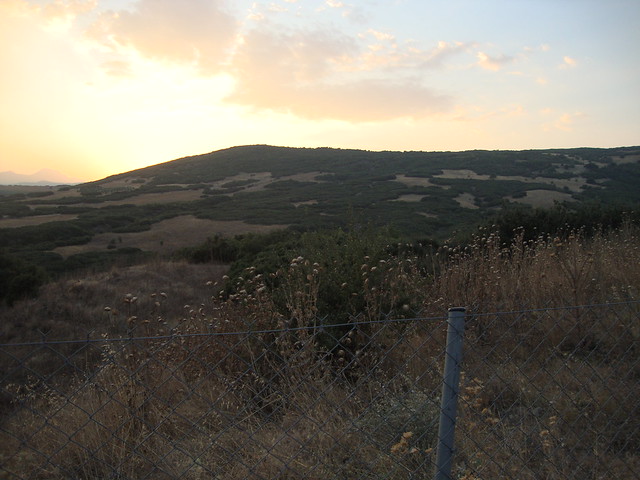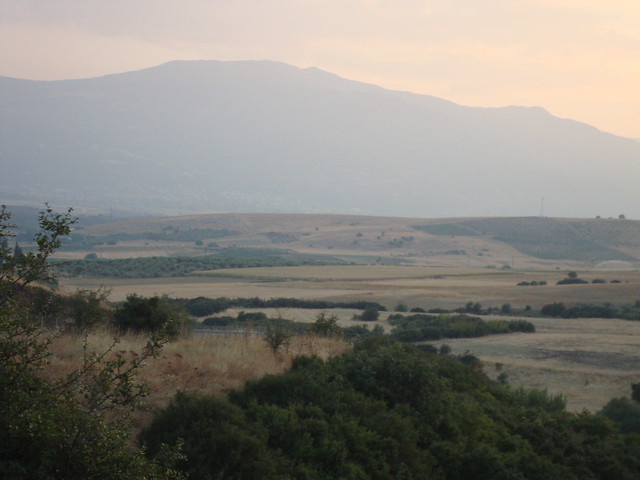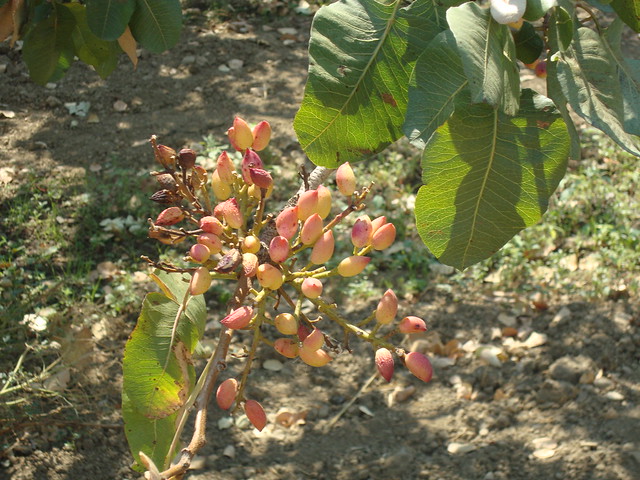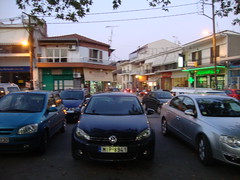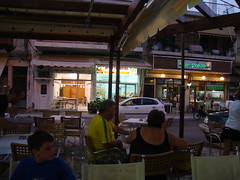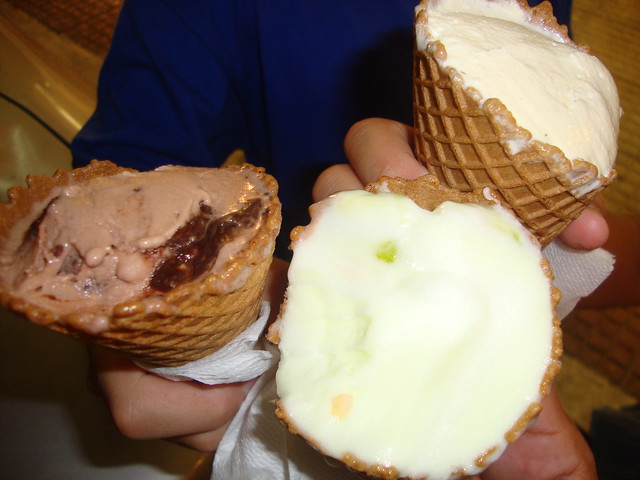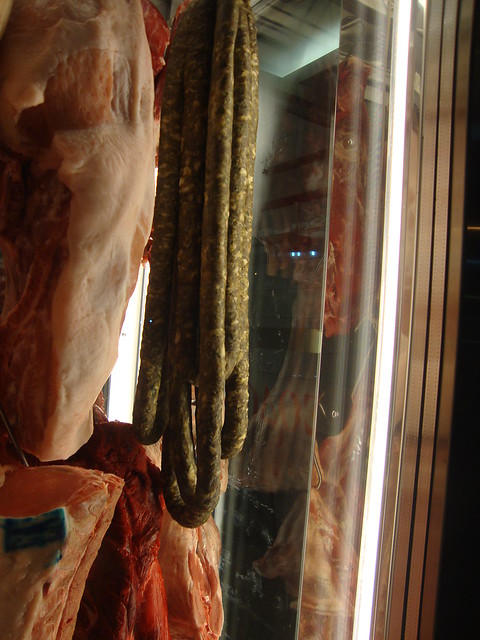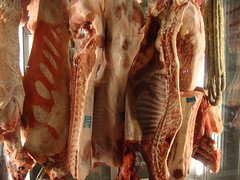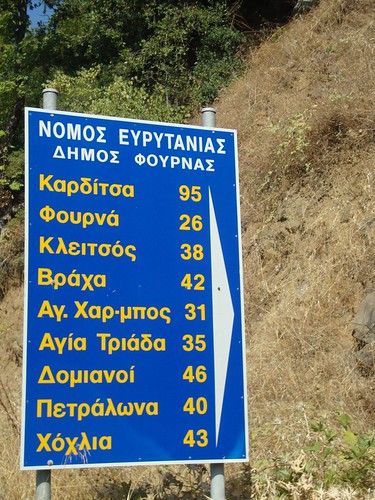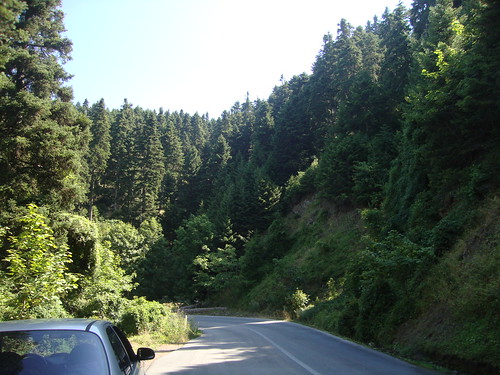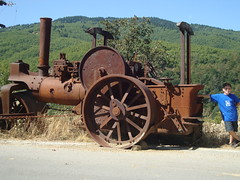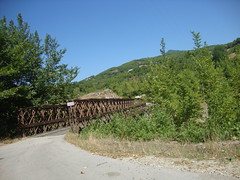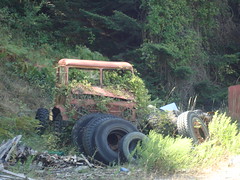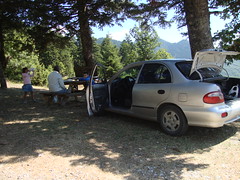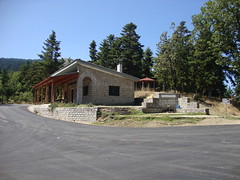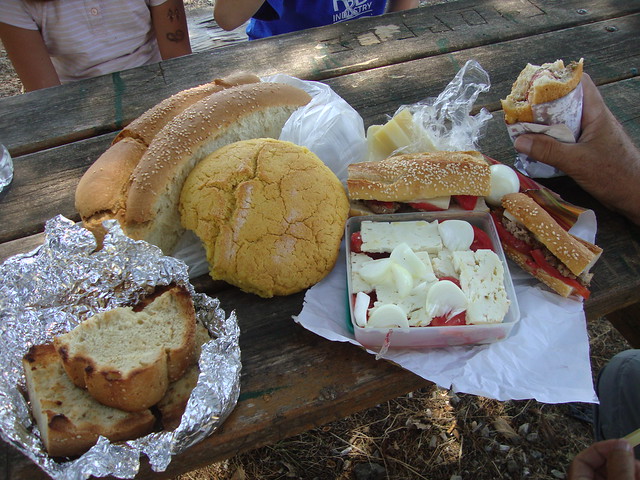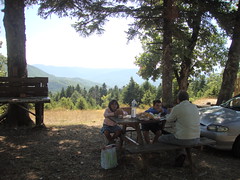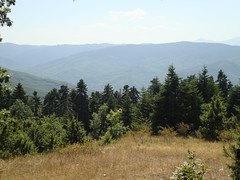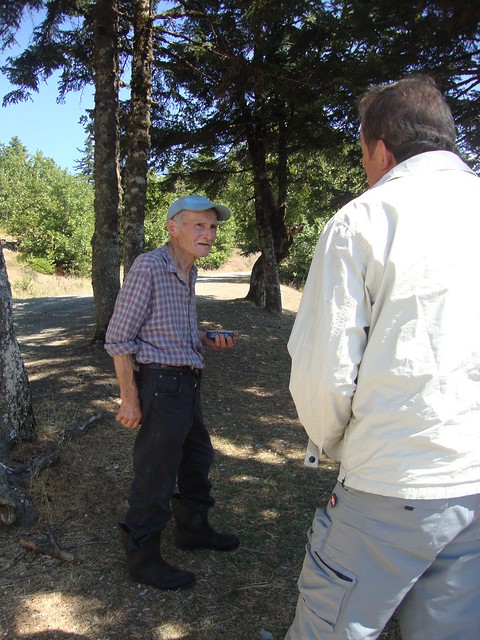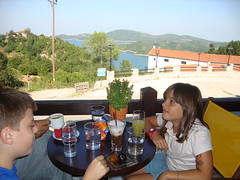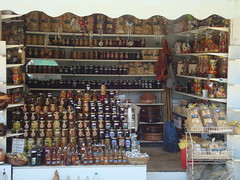Last year at this time, Greek citizens were being warned to expect harsh times ahead. This year, those hard times are slowly setting in, as people are now having to learn to live with less. We are constantly reminded about the country's high unemployment rate, the (s)low economic growth, the implementation of new taxes, the salary drops and the rising cost of living. It's getting more difficult to put a few euros aside. Instead, we are having to resort to using up our savings and penny pinching with whatever is left. This 'new' form of survival resembles the way Greeks made ends meet in the 1960s (except that in the good old days, there was no euro, only drachma).
We're often told that we can't go back to living as we did in the past: the past is a foreign country; they do things differently there. But Greeks at this very moment are being forced to remember the way of life of their recent past. Thanks to modern medicine, technological advances and the Mediterranean diet, most Greeks have people close to them who were growing up in those days and can remember what that past life entailed - it wasn't that far back in the past - in order to remind us of how we can make the necessary changes that will help us live through difficult times.
I was reminded of this at the first parent-teacher meeting at my children's village school. After speaking to the parents about general issues, the headmaster gave them the floor. A Greek mother (as opposed to being of Albanian or Bulgarian descent - the village school contains a mix of ethnicities) stood up and asked the parents' involvement in a future meeting to discuss what can be done to raise our children without enough money. I wasn't sure if I heard right: did she really say that? Maybe she meant something like how we are going to raise our kids with the austerity measures. I (and no one else) asked her to repeat the statement. She smiled at me compassionately, with a comrade look on her face, and repeated the same words (in Greek, naturally) softly and slowly (she reminded me of Arthur Scargill for some reason), making sure that I understood: How are we going to raise kids without enough money?
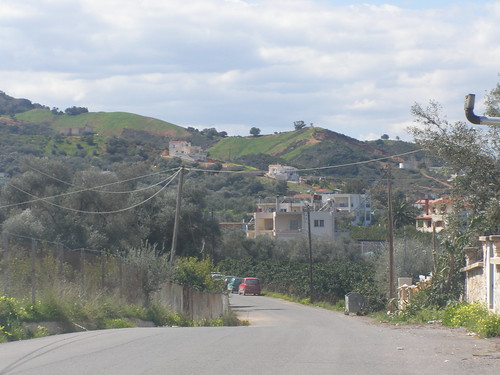 I took a liking to this woman. She had an unpainted face, her blonde hair was natural, and her attire consisting of trekking boots, capri trousers and plain t-shirt made her look like a nature lover, a fan of the great outdoors. She almost looked like an artist, someone with a deeper conscience than the average Greek housewife mother, who liked to clean her house, cook family meals and go shopping.
I took a liking to this woman. She had an unpainted face, her blonde hair was natural, and her attire consisting of trekking boots, capri trousers and plain t-shirt made her look like a nature lover, a fan of the great outdoors. She almost looked like an artist, someone with a deeper conscience than the average Greek housewife mother, who liked to clean her house, cook family meals and go shopping.
But I didn't like the sound of her missive - not the bit which entailed that I would not have enough money (I already knew that), but the part that implied that I would not be able to raise my children with less money. The statement placed great importance on money, and this offended me, partly because I've grown up with the belief that money doesn't buy happiness, and partly because of some assumptions I make about people like this woman: she sends her children to a village school, therefore she lives in the village, in (probably) a house with no mortgage, surrounded by crop fields and tree orchards, and there is most likely someone (if it isn't actually herself) providing her with eggs, chickens and rabbits. I wouldn't be surprised if she can also procure some fresh milk and cheese (or make it herself), because the area is often crossed by shepherds (some walk their flock, others drive it). According to Maslow's theory, she's already solved most of her basic physiological, safety and love/belonging needs, something most urban Greek dwellers can only hope for as the crisis continues to deepen.

But I had second thoughts about my prejudices when I saw someone joining this woman on the podium. He seconded her idea: we don't have enough money to raise our children (there goes that word again, 'money'). He told us he had two children at the school, and since both he and the woman looked younger than me, I began to feel sorry for them. I suddenly felt sorry for all the people in the room, including myself, because we were all in the same position and we could all do nothing.
 Then he revealed his 'perk': he was a retired army officer (read: a Greek state employee who took early retirement - he's younger than me) and he harped on about his pension being too low, how he deserved more because he was posted all over the country (until he had had enough and decided to take early retirement), and he was now living off a low pension; at the time of his retirement, he was supposed to be getting 1,500 euro (at the age of under-45?!), but now with all the cuts, he is only getting 1,000 euro (read: the average Greek salary these days). Admittedly, it's much less than one our neighbours, a retired army general (only just turned 60) who used to receive 3,800 euro as a monthly pension and now gets 'only' 2,200 euros after the cuts. Pray tell me, what on earth did he used to do with so much
money? Grandparents like to dote on their grandchildren - the Greek village children are very well dressed.
Then he revealed his 'perk': he was a retired army officer (read: a Greek state employee who took early retirement - he's younger than me) and he harped on about his pension being too low, how he deserved more because he was posted all over the country (until he had had enough and decided to take early retirement), and he was now living off a low pension; at the time of his retirement, he was supposed to be getting 1,500 euro (at the age of under-45?!), but now with all the cuts, he is only getting 1,000 euro (read: the average Greek salary these days). Admittedly, it's much less than one our neighbours, a retired army general (only just turned 60) who used to receive 3,800 euro as a monthly pension and now gets 'only' 2,200 euros after the cuts. Pray tell me, what on earth did he used to do with so much
money? Grandparents like to dote on their grandchildren - the Greek village children are very well dressed.
 That's when I felt really really sorry for both these people, and all those others who were about to join them in this cause: not because they don't make much money (most Greeks, including myself, are generally in the same position as them), but because they were still thinking in monetary terms. They wanted money, more money, which they are unable to earn themselves, which is what got Greece into the mess she finds herself today. As for this former military person, I assume that he came to live in the village after retirement, because, like the previous speaker, either he or his wife was from there, hence they owned a freehold home there, hence they have a large enough patch of land near their home to grow a good amount of their food needs, and since he's retired, he's got plenty of time to do all this now, unless he - illegally, because you aren't allowed to do this on a state pension - finds work elsewhere, which would entail working for money 'under the table', hello, what's new?
That's when I felt really really sorry for both these people, and all those others who were about to join them in this cause: not because they don't make much money (most Greeks, including myself, are generally in the same position as them), but because they were still thinking in monetary terms. They wanted money, more money, which they are unable to earn themselves, which is what got Greece into the mess she finds herself today. As for this former military person, I assume that he came to live in the village after retirement, because, like the previous speaker, either he or his wife was from there, hence they owned a freehold home there, hence they have a large enough patch of land near their home to grow a good amount of their food needs, and since he's retired, he's got plenty of time to do all this now, unless he - illegally, because you aren't allowed to do this on a state pension - finds work elsewhere, which would entail working for money 'under the table', hello, what's new?
 The school is located in the countryside, surrounded by crop fields and fruit orchards, on the foothills of some of the easier-to-manage pasture land in the region, consisting of rolling walkable hills. Most residents live in their own freehold homes, usually large single- or double-story dwellings with built-in fireplaces, where firewood is readily available (read: free heating in the winter) from the trimmings and coppicing of orchard trees (read: free olive oil and fruit), with enough space on their properties for a large garden (read: more free food), where they can raise chickens and rabbits and forage for wild greens and snails, all things that their ancestors did to survive the last time that Greece found herself in the face of the enemy.
The school is located in the countryside, surrounded by crop fields and fruit orchards, on the foothills of some of the easier-to-manage pasture land in the region, consisting of rolling walkable hills. Most residents live in their own freehold homes, usually large single- or double-story dwellings with built-in fireplaces, where firewood is readily available (read: free heating in the winter) from the trimmings and coppicing of orchard trees (read: free olive oil and fruit), with enough space on their properties for a large garden (read: more free food), where they can raise chickens and rabbits and forage for wild greens and snails, all things that their ancestors did to survive the last time that Greece found herself in the face of the enemy.
 The locals of this area are directly or indirectly involved in agriculture. The school is surrounded by fields: oranges, olives, avocados. There's a horse tied up in one of the fields, while sheep, goats and chickens are often heard and seen. Pick-up trucks ply the empty streets. Beehives are stacked up in open storerooms. Every morning as I drive the children to school, I see someone tending animals; the smell of dung in the damp frosty morning air is not uncommon. A good number of the mothers of my children's classmates do not work, while some are seasonal workers, either in agriculture or tourism. Many rural dwellers live close to their extended families (this is often the main use of a double-story home: grandparents and children live in their own separate homes); among this group of people, responsibilities are shared, meaning that duties like the growing of food, its preparation and cooking often fall on different members of that extended family. If my rural neighbours had a bit more self-esteem and showed a greater acceptance of the facts, they would be on the way to solving even their higher-ranking needs on Maslow's scale, like their Northern European counterparts, who left the desolation of their cold stagnant countries for a bit of sunshine and more quality of life, by moving to Crete: they just know how much better life is down here.
The locals of this area are directly or indirectly involved in agriculture. The school is surrounded by fields: oranges, olives, avocados. There's a horse tied up in one of the fields, while sheep, goats and chickens are often heard and seen. Pick-up trucks ply the empty streets. Beehives are stacked up in open storerooms. Every morning as I drive the children to school, I see someone tending animals; the smell of dung in the damp frosty morning air is not uncommon. A good number of the mothers of my children's classmates do not work, while some are seasonal workers, either in agriculture or tourism. Many rural dwellers live close to their extended families (this is often the main use of a double-story home: grandparents and children live in their own separate homes); among this group of people, responsibilities are shared, meaning that duties like the growing of food, its preparation and cooking often fall on different members of that extended family. If my rural neighbours had a bit more self-esteem and showed a greater acceptance of the facts, they would be on the way to solving even their higher-ranking needs on Maslow's scale, like their Northern European counterparts, who left the desolation of their cold stagnant countries for a bit of sunshine and more quality of life, by moving to Crete: they just know how much better life is down here.
 For many years, right up until the economic crisis hit Greece, living in the rural areas has been looked down on by young Greeks. It's usually where they came from, so it could possibly be seen as a reminder of lower living standards. But the countryside is no longer where the poorer Greeks reside. It's the depressed urban centres of Greece that now cannot provide people with the freedom to achieve their basic needs: in the city, you need money to accomplish this, and if you're unemployed, you have no money, and if you have no money, you can't eat, because everything, literally everything, is bought. Since the crisis hit, the countryside has been viewed as the more prosperous place to be, often being associated with modest low-maintenance shelters, plenty of high quality food, a wealth of resources, a place to find comfort among family, and more importantly, a better place to reflect on the problems facing society, with greater space for creativity and spontaneity, two of the highest-ranking needs in Maslow's needs pyramid.
For many years, right up until the economic crisis hit Greece, living in the rural areas has been looked down on by young Greeks. It's usually where they came from, so it could possibly be seen as a reminder of lower living standards. But the countryside is no longer where the poorer Greeks reside. It's the depressed urban centres of Greece that now cannot provide people with the freedom to achieve their basic needs: in the city, you need money to accomplish this, and if you're unemployed, you have no money, and if you have no money, you can't eat, because everything, literally everything, is bought. Since the crisis hit, the countryside has been viewed as the more prosperous place to be, often being associated with modest low-maintenance shelters, plenty of high quality food, a wealth of resources, a place to find comfort among family, and more importantly, a better place to reflect on the problems facing society, with greater space for creativity and spontaneity, two of the highest-ranking needs in Maslow's needs pyramid.
 Well, I gave the woman my phone number and email (she asked for it - you can be sure that I really liked here then!), and told her I looked forward to hearing from the group (this was three weeks ago). I thought that if the group did actually get started, I could go along and give them tips that I've picked up from my food experiences: foraging, preserving, freezing, how to use the resources
around us to best effect, how to empower ourselves and our children to cope with new technologies and the changing world, and how to educate our kids without that blasted costly frontistirio, which was the fundamental reason why I thought this group was going be started: how can we raise our children with less money?
Well, I gave the woman my phone number and email (she asked for it - you can be sure that I really liked here then!), and told her I looked forward to hearing from the group (this was three weeks ago). I thought that if the group did actually get started, I could go along and give them tips that I've picked up from my food experiences: foraging, preserving, freezing, how to use the resources
around us to best effect, how to empower ourselves and our children to cope with new technologies and the changing world, and how to educate our kids without that blasted costly frontistirio, which was the fundamental reason why I thought this group was going be started: how can we raise our children with less money?
 I didn't expect to heat from anyone; people talk more than they act in this country. So I was quite surprised when I received this email mid-week about a meeting that will take place this Saturday (ie today):
I didn't expect to heat from anyone; people talk more than they act in this country. So I was quite surprised when I received this email mid-week about a meeting that will take place this Saturday (ie today):
 Well, that proves it, doesn't it? The property tax: you only pay it if you have property! Good God, I thought, not only does she sounds like a communist, not only has she basically started YET ANOTHER damn 'Δεν πληρωνω' group, but she believes that she really won't have to pay taxes! The meeting will start in a few hours, but I'm not going. I hope they do manage to remove the property tax - it means I won't have to pay it. But I know that, deep down, they will not be motioning any such thing. Greeks are very predictable: today, the organisers of the meeting are going to tell the participants NOT to pay the tax when the notice is delivered. The whole scenario reminds me of the rubbish collectors in Athens, who went on strike (for more money, what else?) very recently and refused to collect the rubbish for days on end. The government then decided that it had had enough - the work has been given to external partners, and now the rubbish collectors have lost their pay. It's over. Amen.
Well, that proves it, doesn't it? The property tax: you only pay it if you have property! Good God, I thought, not only does she sounds like a communist, not only has she basically started YET ANOTHER damn 'Δεν πληρωνω' group, but she believes that she really won't have to pay taxes! The meeting will start in a few hours, but I'm not going. I hope they do manage to remove the property tax - it means I won't have to pay it. But I know that, deep down, they will not be motioning any such thing. Greeks are very predictable: today, the organisers of the meeting are going to tell the participants NOT to pay the tax when the notice is delivered. The whole scenario reminds me of the rubbish collectors in Athens, who went on strike (for more money, what else?) very recently and refused to collect the rubbish for days on end. The government then decided that it had had enough - the work has been given to external partners, and now the rubbish collectors have lost their pay. It's over. Amen.
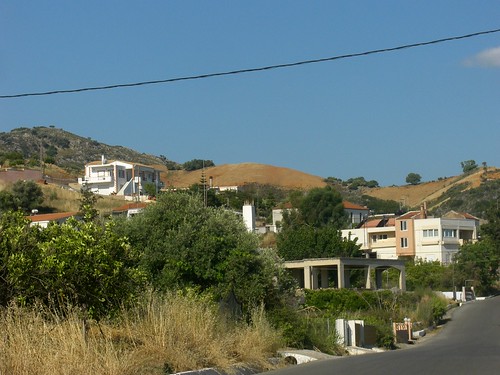 Νo one wants to pay, and no one wants to count their blessings. They think of paying and being thankful as soft options. Εveryone thinks it's someone else's fault, never ever theirs. Greece is bankrupt, but everyone continues to give her money to support
her. Greeks continue not to pay taxes. Those owing money or
squandering public wealth have not been punished. No one's bank accounts have been frozen and no one's property has been confiscated. So why hope for any
change in Greece?
Νo one wants to pay, and no one wants to count their blessings. They think of paying and being thankful as soft options. Εveryone thinks it's someone else's fault, never ever theirs. Greece is bankrupt, but everyone continues to give her money to support
her. Greeks continue not to pay taxes. Those owing money or
squandering public wealth have not been punished. No one's bank accounts have been frozen and no one's property has been confiscated. So why hope for any
change in Greece?
The photos have been taken from facebook and real estate agents' sites of the school area; I so much wanted to show you the picturesque green fields of the main road leading to the school, but the price of petrol (coupled with the tank drivers' strike) doesn't allow it. Working out how much money a person makes in Greece these days is not difficult: just ask them how much they paid in 'Solidarity Tax': that's about 2% of the total income in their household.
©All Rights Reserved/Organically cooked. No part of this blog may be reproduced and/or copied by any means without prior consent from Maria Verivaki.
We're often told that we can't go back to living as we did in the past: the past is a foreign country; they do things differently there. But Greeks at this very moment are being forced to remember the way of life of their recent past. Thanks to modern medicine, technological advances and the Mediterranean diet, most Greeks have people close to them who were growing up in those days and can remember what that past life entailed - it wasn't that far back in the past - in order to remind us of how we can make the necessary changes that will help us live through difficult times.
I was reminded of this at the first parent-teacher meeting at my children's village school. After speaking to the parents about general issues, the headmaster gave them the floor. A Greek mother (as opposed to being of Albanian or Bulgarian descent - the village school contains a mix of ethnicities) stood up and asked the parents' involvement in a future meeting to discuss what can be done to raise our children without enough money. I wasn't sure if I heard right: did she really say that? Maybe she meant something like how we are going to raise our kids with the austerity measures. I (and no one else) asked her to repeat the statement. She smiled at me compassionately, with a comrade look on her face, and repeated the same words (in Greek, naturally) softly and slowly (she reminded me of Arthur Scargill for some reason), making sure that I understood: How are we going to raise kids without enough money?
 I took a liking to this woman. She had an unpainted face, her blonde hair was natural, and her attire consisting of trekking boots, capri trousers and plain t-shirt made her look like a nature lover, a fan of the great outdoors. She almost looked like an artist, someone with a deeper conscience than the average Greek housewife mother, who liked to clean her house, cook family meals and go shopping.
I took a liking to this woman. She had an unpainted face, her blonde hair was natural, and her attire consisting of trekking boots, capri trousers and plain t-shirt made her look like a nature lover, a fan of the great outdoors. She almost looked like an artist, someone with a deeper conscience than the average Greek housewife mother, who liked to clean her house, cook family meals and go shopping. But I didn't like the sound of her missive - not the bit which entailed that I would not have enough money (I already knew that), but the part that implied that I would not be able to raise my children with less money. The statement placed great importance on money, and this offended me, partly because I've grown up with the belief that money doesn't buy happiness, and partly because of some assumptions I make about people like this woman: she sends her children to a village school, therefore she lives in the village, in (probably) a house with no mortgage, surrounded by crop fields and tree orchards, and there is most likely someone (if it isn't actually herself) providing her with eggs, chickens and rabbits. I wouldn't be surprised if she can also procure some fresh milk and cheese (or make it herself), because the area is often crossed by shepherds (some walk their flock, others drive it). According to Maslow's theory, she's already solved most of her basic physiological, safety and love/belonging needs, something most urban Greek dwellers can only hope for as the crisis continues to deepen.

But I had second thoughts about my prejudices when I saw someone joining this woman on the podium. He seconded her idea: we don't have enough money to raise our children (there goes that word again, 'money'). He told us he had two children at the school, and since both he and the woman looked younger than me, I began to feel sorry for them. I suddenly felt sorry for all the people in the room, including myself, because we were all in the same position and we could all do nothing.
 Then he revealed his 'perk': he was a retired army officer (read: a Greek state employee who took early retirement - he's younger than me) and he harped on about his pension being too low, how he deserved more because he was posted all over the country (until he had had enough and decided to take early retirement), and he was now living off a low pension; at the time of his retirement, he was supposed to be getting 1,500 euro (at the age of under-45?!), but now with all the cuts, he is only getting 1,000 euro (read: the average Greek salary these days). Admittedly, it's much less than one our neighbours, a retired army general (only just turned 60) who used to receive 3,800 euro as a monthly pension and now gets 'only' 2,200 euros after the cuts. Pray tell me, what on earth did he used to do with so much
money? Grandparents like to dote on their grandchildren - the Greek village children are very well dressed.
Then he revealed his 'perk': he was a retired army officer (read: a Greek state employee who took early retirement - he's younger than me) and he harped on about his pension being too low, how he deserved more because he was posted all over the country (until he had had enough and decided to take early retirement), and he was now living off a low pension; at the time of his retirement, he was supposed to be getting 1,500 euro (at the age of under-45?!), but now with all the cuts, he is only getting 1,000 euro (read: the average Greek salary these days). Admittedly, it's much less than one our neighbours, a retired army general (only just turned 60) who used to receive 3,800 euro as a monthly pension and now gets 'only' 2,200 euros after the cuts. Pray tell me, what on earth did he used to do with so much
money? Grandparents like to dote on their grandchildren - the Greek village children are very well dressed.  That's when I felt really really sorry for both these people, and all those others who were about to join them in this cause: not because they don't make much money (most Greeks, including myself, are generally in the same position as them), but because they were still thinking in monetary terms. They wanted money, more money, which they are unable to earn themselves, which is what got Greece into the mess she finds herself today. As for this former military person, I assume that he came to live in the village after retirement, because, like the previous speaker, either he or his wife was from there, hence they owned a freehold home there, hence they have a large enough patch of land near their home to grow a good amount of their food needs, and since he's retired, he's got plenty of time to do all this now, unless he - illegally, because you aren't allowed to do this on a state pension - finds work elsewhere, which would entail working for money 'under the table', hello, what's new?
That's when I felt really really sorry for both these people, and all those others who were about to join them in this cause: not because they don't make much money (most Greeks, including myself, are generally in the same position as them), but because they were still thinking in monetary terms. They wanted money, more money, which they are unable to earn themselves, which is what got Greece into the mess she finds herself today. As for this former military person, I assume that he came to live in the village after retirement, because, like the previous speaker, either he or his wife was from there, hence they owned a freehold home there, hence they have a large enough patch of land near their home to grow a good amount of their food needs, and since he's retired, he's got plenty of time to do all this now, unless he - illegally, because you aren't allowed to do this on a state pension - finds work elsewhere, which would entail working for money 'under the table', hello, what's new?  The school is located in the countryside, surrounded by crop fields and fruit orchards, on the foothills of some of the easier-to-manage pasture land in the region, consisting of rolling walkable hills. Most residents live in their own freehold homes, usually large single- or double-story dwellings with built-in fireplaces, where firewood is readily available (read: free heating in the winter) from the trimmings and coppicing of orchard trees (read: free olive oil and fruit), with enough space on their properties for a large garden (read: more free food), where they can raise chickens and rabbits and forage for wild greens and snails, all things that their ancestors did to survive the last time that Greece found herself in the face of the enemy.
The school is located in the countryside, surrounded by crop fields and fruit orchards, on the foothills of some of the easier-to-manage pasture land in the region, consisting of rolling walkable hills. Most residents live in their own freehold homes, usually large single- or double-story dwellings with built-in fireplaces, where firewood is readily available (read: free heating in the winter) from the trimmings and coppicing of orchard trees (read: free olive oil and fruit), with enough space on their properties for a large garden (read: more free food), where they can raise chickens and rabbits and forage for wild greens and snails, all things that their ancestors did to survive the last time that Greece found herself in the face of the enemy.  The locals of this area are directly or indirectly involved in agriculture. The school is surrounded by fields: oranges, olives, avocados. There's a horse tied up in one of the fields, while sheep, goats and chickens are often heard and seen. Pick-up trucks ply the empty streets. Beehives are stacked up in open storerooms. Every morning as I drive the children to school, I see someone tending animals; the smell of dung in the damp frosty morning air is not uncommon. A good number of the mothers of my children's classmates do not work, while some are seasonal workers, either in agriculture or tourism. Many rural dwellers live close to their extended families (this is often the main use of a double-story home: grandparents and children live in their own separate homes); among this group of people, responsibilities are shared, meaning that duties like the growing of food, its preparation and cooking often fall on different members of that extended family. If my rural neighbours had a bit more self-esteem and showed a greater acceptance of the facts, they would be on the way to solving even their higher-ranking needs on Maslow's scale, like their Northern European counterparts, who left the desolation of their cold stagnant countries for a bit of sunshine and more quality of life, by moving to Crete: they just know how much better life is down here.
The locals of this area are directly or indirectly involved in agriculture. The school is surrounded by fields: oranges, olives, avocados. There's a horse tied up in one of the fields, while sheep, goats and chickens are often heard and seen. Pick-up trucks ply the empty streets. Beehives are stacked up in open storerooms. Every morning as I drive the children to school, I see someone tending animals; the smell of dung in the damp frosty morning air is not uncommon. A good number of the mothers of my children's classmates do not work, while some are seasonal workers, either in agriculture or tourism. Many rural dwellers live close to their extended families (this is often the main use of a double-story home: grandparents and children live in their own separate homes); among this group of people, responsibilities are shared, meaning that duties like the growing of food, its preparation and cooking often fall on different members of that extended family. If my rural neighbours had a bit more self-esteem and showed a greater acceptance of the facts, they would be on the way to solving even their higher-ranking needs on Maslow's scale, like their Northern European counterparts, who left the desolation of their cold stagnant countries for a bit of sunshine and more quality of life, by moving to Crete: they just know how much better life is down here.  For many years, right up until the economic crisis hit Greece, living in the rural areas has been looked down on by young Greeks. It's usually where they came from, so it could possibly be seen as a reminder of lower living standards. But the countryside is no longer where the poorer Greeks reside. It's the depressed urban centres of Greece that now cannot provide people with the freedom to achieve their basic needs: in the city, you need money to accomplish this, and if you're unemployed, you have no money, and if you have no money, you can't eat, because everything, literally everything, is bought. Since the crisis hit, the countryside has been viewed as the more prosperous place to be, often being associated with modest low-maintenance shelters, plenty of high quality food, a wealth of resources, a place to find comfort among family, and more importantly, a better place to reflect on the problems facing society, with greater space for creativity and spontaneity, two of the highest-ranking needs in Maslow's needs pyramid.
For many years, right up until the economic crisis hit Greece, living in the rural areas has been looked down on by young Greeks. It's usually where they came from, so it could possibly be seen as a reminder of lower living standards. But the countryside is no longer where the poorer Greeks reside. It's the depressed urban centres of Greece that now cannot provide people with the freedom to achieve their basic needs: in the city, you need money to accomplish this, and if you're unemployed, you have no money, and if you have no money, you can't eat, because everything, literally everything, is bought. Since the crisis hit, the countryside has been viewed as the more prosperous place to be, often being associated with modest low-maintenance shelters, plenty of high quality food, a wealth of resources, a place to find comfort among family, and more importantly, a better place to reflect on the problems facing society, with greater space for creativity and spontaneity, two of the highest-ranking needs in Maslow's needs pyramid. Well, I gave the woman my phone number and email (she asked for it - you can be sure that I really liked here then!), and told her I looked forward to hearing from the group (this was three weeks ago). I thought that if the group did actually get started, I could go along and give them tips that I've picked up from my food experiences: foraging, preserving, freezing, how to use the resources
around us to best effect, how to empower ourselves and our children to cope with new technologies and the changing world, and how to educate our kids without that blasted costly frontistirio, which was the fundamental reason why I thought this group was going be started: how can we raise our children with less money?
Well, I gave the woman my phone number and email (she asked for it - you can be sure that I really liked here then!), and told her I looked forward to hearing from the group (this was three weeks ago). I thought that if the group did actually get started, I could go along and give them tips that I've picked up from my food experiences: foraging, preserving, freezing, how to use the resources
around us to best effect, how to empower ourselves and our children to cope with new technologies and the changing world, and how to educate our kids without that blasted costly frontistirio, which was the fundamental reason why I thought this group was going be started: how can we raise our children with less money? I didn't expect to heat from anyone; people talk more than they act in this country. So I was quite surprised when I received this email mid-week about a meeting that will take place this Saturday (ie today):
I didn't expect to heat from anyone; people talk more than they act in this country. So I was quite surprised when I received this email mid-week about a meeting that will take place this Saturday (ie today):"Γείτονες, κάτοικοι της ευρύτερης περιοχής του ___________, με συζήτηση μεταξύ μας πήραμε την πρωτοβουλία να καλέσουμε όλους τους πολίτες της περιοχής σε λαϊκή συνέλευση. Ο λόγος που βρισκόμαστε είναι ότι δε μπορούμε να πληρώσουμε άλλο. Δε θέλουμε να θυσιαστούμε όταν η πορεία που ακολουθείται είναι αδιέξοδη για τη χώρα μας. Αρνούμαστε να θυσιάσουμε το μέλλον των παιδιών μας για τους τοκογλύφους της τρόϊκας. Στόχος μας είναι να δράσουμε και να αντιδράσουμε, ώστε κανένας μας να μην πληρώσει τα χαράτσια που μας επιβάλουν, ξεκινώντας από το χαράτσι της ΔΕΗ. Ας μη χάσουμε άλλο χρόνο. Να οργανωθούμε και να αγωνιστούμε όλοι μαζί, γιατί άλλη ελπίδα δε φαίνεται. Μαζικά μπορούμε να τα καταφέρουμε να μην πληρώσει κανείς, να καταργήσουμε το άδικο χαράτσι."
"Neighbors, residents of the ___________ area, following our discussion, we took the initiative to invite all citizens of the region to a people's assembly. The reason is that we can not pay any more. We do not wish to sacrifice ourselves when the path being followed is hopeless for our country. We refuse to sacrifice the future of our children to the troika moneylenders. Our goal is to act and react, so none of us will end up paying the property tax being imposed on us, starting with the DEH property tax. Let's not lose more time. Let's get organised and fight together, because there seems to be no other hope. Together we can manage not to make anyone pay, and remove this unjust property tax."
 Well, that proves it, doesn't it? The property tax: you only pay it if you have property! Good God, I thought, not only does she sounds like a communist, not only has she basically started YET ANOTHER damn 'Δεν πληρωνω' group, but she believes that she really won't have to pay taxes! The meeting will start in a few hours, but I'm not going. I hope they do manage to remove the property tax - it means I won't have to pay it. But I know that, deep down, they will not be motioning any such thing. Greeks are very predictable: today, the organisers of the meeting are going to tell the participants NOT to pay the tax when the notice is delivered. The whole scenario reminds me of the rubbish collectors in Athens, who went on strike (for more money, what else?) very recently and refused to collect the rubbish for days on end. The government then decided that it had had enough - the work has been given to external partners, and now the rubbish collectors have lost their pay. It's over. Amen.
Well, that proves it, doesn't it? The property tax: you only pay it if you have property! Good God, I thought, not only does she sounds like a communist, not only has she basically started YET ANOTHER damn 'Δεν πληρωνω' group, but she believes that she really won't have to pay taxes! The meeting will start in a few hours, but I'm not going. I hope they do manage to remove the property tax - it means I won't have to pay it. But I know that, deep down, they will not be motioning any such thing. Greeks are very predictable: today, the organisers of the meeting are going to tell the participants NOT to pay the tax when the notice is delivered. The whole scenario reminds me of the rubbish collectors in Athens, who went on strike (for more money, what else?) very recently and refused to collect the rubbish for days on end. The government then decided that it had had enough - the work has been given to external partners, and now the rubbish collectors have lost their pay. It's over. Amen.  Νo one wants to pay, and no one wants to count their blessings. They think of paying and being thankful as soft options. Εveryone thinks it's someone else's fault, never ever theirs. Greece is bankrupt, but everyone continues to give her money to support
her. Greeks continue not to pay taxes. Those owing money or
squandering public wealth have not been punished. No one's bank accounts have been frozen and no one's property has been confiscated. So why hope for any
change in Greece?
Νo one wants to pay, and no one wants to count their blessings. They think of paying and being thankful as soft options. Εveryone thinks it's someone else's fault, never ever theirs. Greece is bankrupt, but everyone continues to give her money to support
her. Greeks continue not to pay taxes. Those owing money or
squandering public wealth have not been punished. No one's bank accounts have been frozen and no one's property has been confiscated. So why hope for any
change in Greece? The photos have been taken from facebook and real estate agents' sites of the school area; I so much wanted to show you the picturesque green fields of the main road leading to the school, but the price of petrol (coupled with the tank drivers' strike) doesn't allow it. Working out how much money a person makes in Greece these days is not difficult: just ask them how much they paid in 'Solidarity Tax': that's about 2% of the total income in their household.
©All Rights Reserved/Organically cooked. No part of this blog may be reproduced and/or copied by any means without prior consent from Maria Verivaki.



